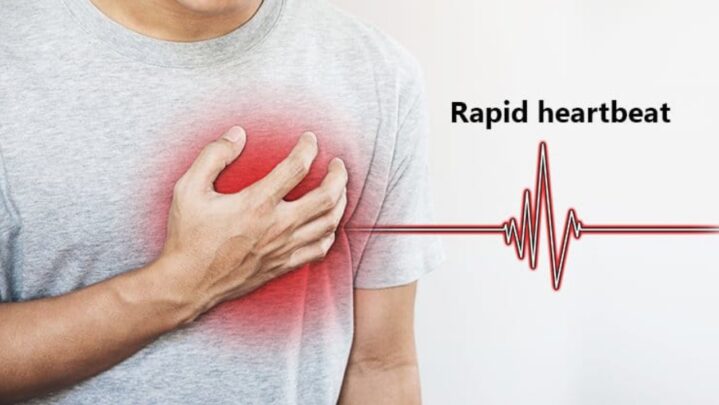Have you ever had a feeling that your pulse is racing or throbbing a lot more than usual? Perhaps your heart skips rhythms, or you can feel your pulse in your neck and chest. It’s possible that you’re having heart palpitations.
Irregular heartbeats can happen at any moment and will last only a few moments.
The best part is that a rapid beating does not always indicate a cardiac problem. Palpitations can be brought on by items that make your heart beat faster. Heart palpitation can be caused by a variety of factors, including stress, worry, and exhaustion.
Here is how you can stop heart palpitation.
1. Stay hydrated.
Heart disturbances can be caused by loss of water. Because your bloodstream absorbs moisture, it might thicken when you’re thirsty. The harder your heart has to pump to transport your blood via your channels, the thicker it is. This can raise your heart rhythm and perhaps cause palpitations.
2. Lower your stress intensity.
A high pulse rate and anxiety often go together. As a result, lowering your heartbeat might be as simple as lowering your anxiety levels. It may also help you avoid hypertension and other stress-related illnesses. Try meditation or any other form of relaxation.
3. Workout on a daily basis.
Frequent exercise is beneficial to one’s physical, mental, and emotional health. Try to perform cardio three times a week. Cardio does not need to be difficult. Daily walks have a slew of therapeutic benefits, including weight reduction; improved circulation, and better overall health.
4. Stimulants should be avoided.
There are a variety of medications that can increase your chances of having a rapid heartbeat. By removing these items from your normal routine, you may be able to reduce or perhaps eliminate your problems. Tobacco, alcohol, narcotics, and other heavy medications are hazardous to your cardiovascular.
5. Enhance electrolyte equilibrium.
Electrolytes aid in the transmission of electrical pulses all across the body. Electrical signals are necessary for your pulse to operate normally. Potassium, calcium, and sodium are some elements that can help your cardiovascular. The majority of these minerals can be found in foods like bananas and spinach.
Also Read: Ways To Try Moving More In Daily Life





